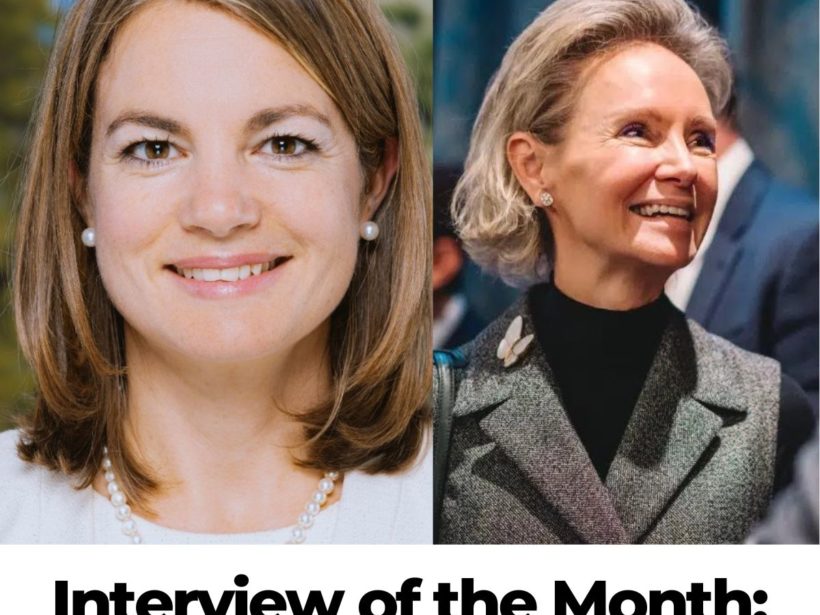
Interview of the Month: Davos Key Takeaways
The World Economic Forum Annual Meeting took place once again in Davos, this year with the theme of “Rebuilding Trust Amid Uncertainty”. During the week, speakers highlighted the complexity of the global geopolitical landscape, emphasizing the urgent need for enhanced collaboration and cooperation to address pressing challenges such as climate change, AI governance, and peace and security, with leaders advocating for reforms to global governance systems and a more inclusive approach to decision-making.
- Amid a complex geopolitical landscape and uncertain economic outlook, leaders at Davos explored a new model for growth, emphasizing the importance of rethinking prosperity, free trade capitalism, and a balanced growth model that addresses equity and sustainability.
- AI took center stage at multiple sessions in Davos, with discussions highlighting its potential for scientific discovery while calls for governance, regulation, and equitable benefits distribution echoed from both the public and private sectors, emphasizing the importance of a global regulatory approach and inclusive development.
- Davos’s discussions emphasized the urgency of action for the climate crisis, with leaders calling for an accelerated response and stressing the need for a departure from business as usual. The imperative for a just transition was underscored by various speakers, recognizing the link between climate action, business competitiveness, and societal well-being.
Source: WEF. (2024). Davos 2024: 4 things to know. https://www.weforum.org/agenda/2024/01/davos-2024-highlights-ai-growth-climate-security/
Many individuals and institutions from Geneva were present at Davos this year, taking part in a variety of sessions, discussions, and networking events. We caught up with a few of them to hear their key takeaways:
“Nature-related risks are the top half of the WEF’s Global Risks Report 2024 list of 10-year risks, and leaders have a clear roadmap to act in the Kunming-Montreal Global Biodiversity Framework. Nature action was prominent at Davos this year – from SDG Tent events on biodiversity credits and defining “nature positive”, to the presentation of the inaugural cohort of 320 Taskforce on Nature-related Financial Disclosures (TNFD) Early Adopters, via artist Refik Anadol’s WEF-supported large nature model, and in the announcement of UNEP FI’s Risk Centre coming online later this year. Business leaders see the growing case for investing in conservation, restoration, and regenerative approaches that reward nature’s stewards including Indigenous Peoples and Local Communities.”
– Jessica Smith, UNEP FI: Attended on behalf of the Biodiversity Credits Alliance, a UN-supported effort guiding the development of nature markets
“My main takeaway is that the key challenge of our time is rebuilding trust around our economic system. Social good and nature must become part of the equation, and private investment, part of the solution. Public and philanthropic actors can play a major role in building the foundations for private capital to support SDGs, especially in developing markets. The partnership between the Swiss Government, UBS Optimus, and now, Luxembourg around the SDG Impact Finance Initiative, aiming at scaling impact investing up, is a good example.”
– Guillaume Bonnel, SDG Impact Finance Initiative: Participated in the event “Unlocking the True Potential of Sustainable Financing in a Complex World”, at the House of Switzerland, to announce the Grand Duchy of Luxemburg as a new member of the SDG Impact Finance Initiative.
“Two sessions stood out in particular for me because of their honesty, courage, and provocations to expand our imaginations. The session organized by Nature Finance at the SDG Tent on the need to prepare for a future beyond 1.5 degrees pointed out how false hope has become part of the problem and constrains true creativity and responsibility. The second session was the “Missing Trillions” led by Metabolic and co-sponsored by the Systemic Climate Action Collaborative which highlighted the importance of re-imagining the finance system to align financial prosperity with ecological vitality. Overall I think the conversations in Davos were more real this year.”
– Mille Bojer, Reos Partners: Co-sponsored a side event on accelerating climate finance, called “The Missing Trillions” and spoke in a co-creation session on Skills and Mindsets for climate action.




